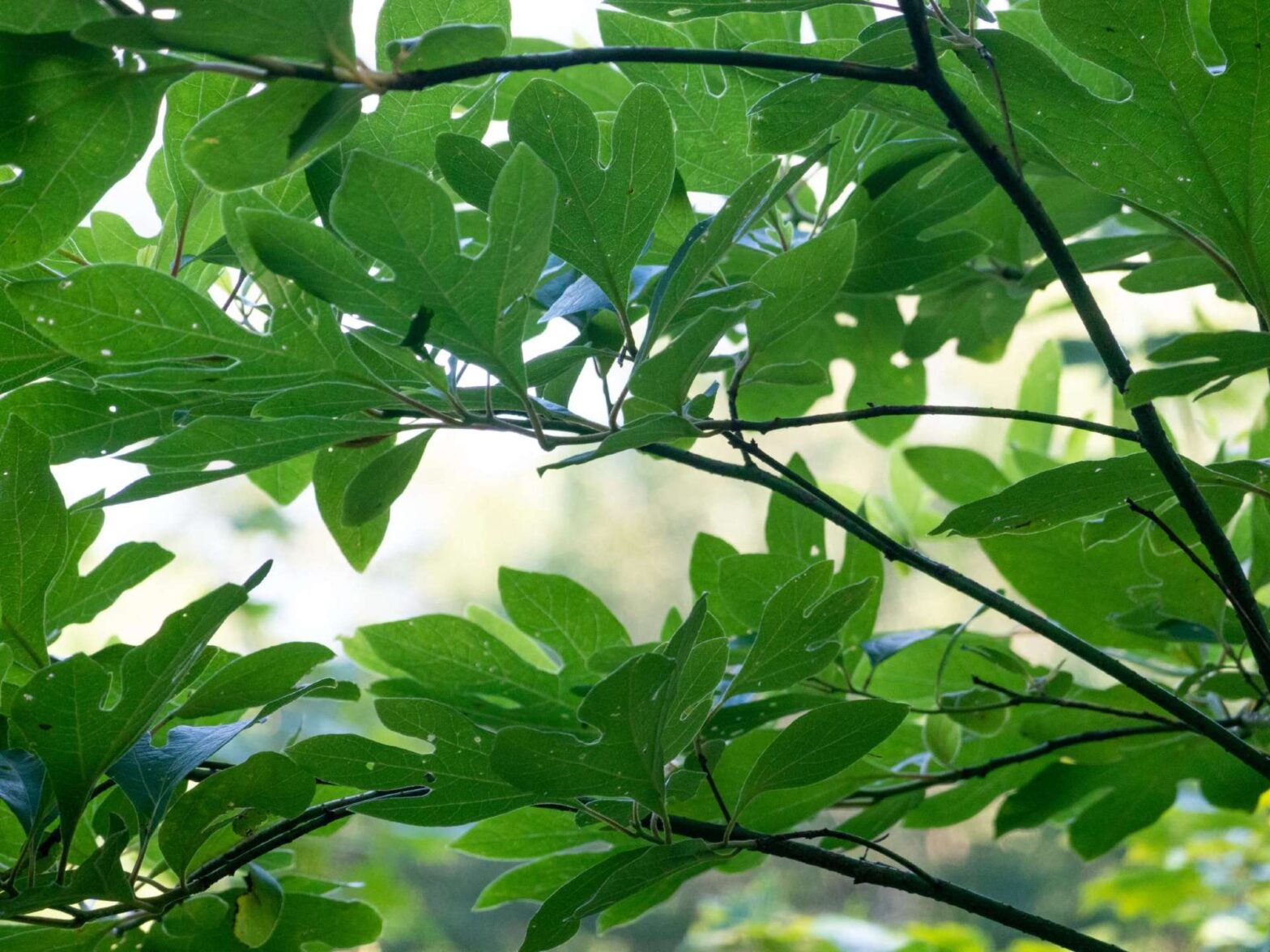Travel through the country in the summer as you should, and there’s a good chance you’ll come across a street vendor or two who smokes their meat with sugary and mellow sassafras wood.
“The smoke cloud had a unique odor,” one member of the Michigan Sportsman Forum recalls, “it was not the usual hickory, oak, or maple. I asked the vendor what wood he was using—he replied sassafras.”
Conventional wisdom teaches us to use only hardwoods for smoking meat, never softwoods. The latter, the coniferous trees that they are, can contain harmful chemicals which irritate your lungs when inhaled and make you sick when eaten.
That being said, some hardwoods are more suitable for smoking meat than others. For example, eucalyptus isn’t ideal for smoking meat because it can impart a bitter, overly mentholic taste to your meats.
For the reasons we are about to discuss below, sassafras isn’t a good choice as well.
Sassafras, a hardwood that burns with sweet, mild smoke, may not be entirely safe for cooking over. Sassafras bark contains safrole, a toxic chemical banned for human consumption by the FDA in the 1960s.
Safrole, the FDA’s Code of Federal Regulations says, “is a natural constituent of the sassafras plant. Oil of sassafras is about 80% safrole.”
Whether or not to smoke meat with sassafras wood is a matter of the personal choice of the meat smoker: Some pitmasters say that they don’t use it in such large quantities or so frequently that they should be concerned. Others disagree and avoid using it altogether.
A History of Cooking With Sassafras
The sassafras tree has long been used in Native American culinary traditions, as well as in the making of present-day American foods and beverages.
According to Padma Lakshmi’s “Encyclopedia of Spices and Herbs,” the Choctaw Indians in Louisiana dried the sassafrass tree’s leaves to make filé, a powder that Creole and Cajun cooks still use today to thicken gumbos, soups, and stews by stirring it in at the end of cooking.
The uses go on with the original recipe for the mint-like, slightly-bitter root beer, which calls for sassafras root, an ingredient that’s been banned from sale in the United States for decades (we will get to why in a moment).
Last but not least, there is sassafras tea, a drink that our grandmothers prepared by boiling the root bark of the tree for a quarter-hour so that its root-beer aromas and sweetly flavors could pass into the water.
Concerns About Sassafras Wood’s Safety
There is a potential problem with using sassafras wood, whether for brewing beer, making tea, or smoking meat: the tree contains a certain toxic and carcinogenic compound called safrole.
The bark of the sassafras tree contains the colorless, oily safrole, which was found to cause cancer in lab rats when consumed in large quantities and, consequently, was banned for human consumption by the U.S. Food and Drug Administration on December 3, 1960.
Now, in-depth studies on the safety of sassafras wood for grilling, barbecuing, and smoking meat have not been conducted, and aside from a few forum posts by meat smokers who seem to know their stuff, there is little to no information on the subject.
Nevertheless, safrole is one of those substances that you would not want to accumulate in your body, especially considering that its safety is the subject of scientific debate, albeit sparse.
(Fellers, this also tells us that we need to get more bright academic minds excited about smoking meat!)


While safrole is a carcinogen, most people cautioning against its use in smoking food don’t seem to grasp that SMOKE ITSELF is a carcinogen as well. If removing all cancer risk is a goal, then nothing is safe for smoking.
You make a good point, too, AH. Thanks for stoppin’ by.
Johan Strindberg once said, “There are poisons that blind you, and poisons that open your eyes.” This one even makes the mouth water!
Sammy